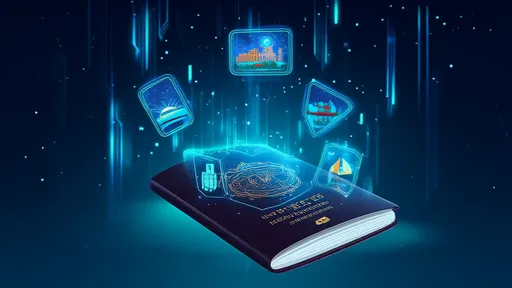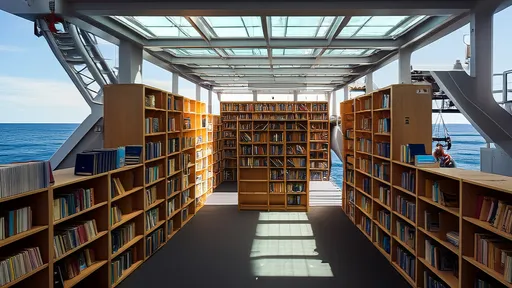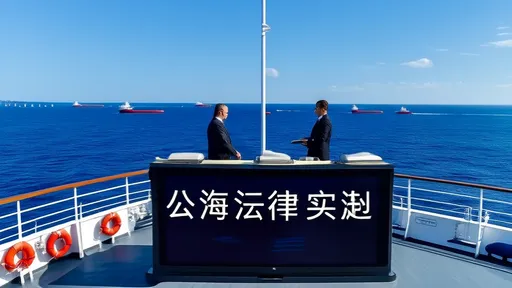The concept of legal vacuums in international waters has long fascinated legal scholars and maritime experts alike. Cruise ships, those floating microcosms of society, present particularly intriguing case studies when it comes to the practical application of law on the high seas. As these vessels traverse waters beyond any single nation's jurisdiction, they create temporary legal environments that challenge traditional notions of sovereignty and enforcement.
When a cruise ship sails beyond territorial waters, it enters what might be considered a legal twilight zone. The vessel remains subject to the laws of its flag state - the country where it's registered - yet simultaneously operates in spaces where no single nation holds absolute authority. This peculiar arrangement leads to complex situations where jurisdictional boundaries blur, and the practical enforcement of laws becomes increasingly problematic.
The flag state system, established through international maritime conventions, attempts to provide legal continuity across the oceans. However, the reality often falls short of this ideal. Many cruise ships register in "flag of convenience" nations like Panama, Liberia, or the Bahamas - countries known for their lax regulations and minimal oversight. This practice creates what critics describe as floating legal voids, where accountability can vanish as quickly as a ship disappears over the horizon.
Serious crimes committed aboard cruise ships reveal the system's flaws with disturbing clarity. There exists no international maritime police force with authority to investigate offenses in international waters. Instead, responsibility falls to the ship's security personnel - who typically lack proper law enforcement training - and to the flag state, which may have little incentive or capacity to pursue cases involving non-citizens in distant waters.
Labor laws represent another area where the high seas' legal ambiguity becomes apparent. Cruise ship employees, often recruited from developing nations, frequently work under contracts that would be unenforceable in most countries' territorial jurisdictions. Excessive working hours, substandard living conditions, and inadequate medical care persist precisely because these floating workplaces exist in spaces where traditional labor protections don't automatically apply.
Environmental regulations face similar challenges in international waters. While international treaties establish baseline standards for pollution control, enforcement remains inconsistent at best. The vastness of the oceans makes monitoring difficult, and the jurisdictional complexities create opportunities for bad actors to bypass regulations. Some cruise lines have been caught repeatedly dumping waste in international waters, knowing the chances of detection and prosecution remain slim.
Passenger contracts further complicate the legal landscape. These lengthy, dense documents often contain clauses requiring disputes to be resolved through arbitration in specific jurisdictions favorable to the cruise lines. By the time passengers realize they've agreed to these terms, they're already miles from shore in a legal environment stacked against them. This contractual sleight-of-hand exemplifies how legal vacuums can be deliberately engineered to benefit corporate interests.
The COVID-19 pandemic exposed additional vulnerabilities in this system. When outbreaks occurred on cruise ships in international waters, no clear protocol existed for determining which nation should assume responsibility for passengers' welfare. Ships found themselves stranded between ports, with countries reluctant to accept potentially infected travelers and cruise lines unprepared to handle the medical and logistical challenges.
Technological advancements may eventually help address some of these issues. Improved satellite monitoring could enhance environmental compliance, while digital documentation systems might streamline jurisdictional determinations. However, technology alone cannot resolve the fundamental problem: the absence of a coherent, enforceable legal framework for the high seas.
Some legal scholars advocate for expanding the jurisdiction of coastal states further into international waters, while others propose strengthening international maritime organizations. The cruise industry, for its part, generally resists such measures, preferring the flexibility of the current system. This tension between regulation and commercial interests lies at the heart of the legal vacuum dilemma.
As cruise ships grow larger and more numerous, carrying thousands of passengers and crew members in what amount to floating cities, the need for clearer legal structures becomes increasingly urgent. The current patchwork of flag state responsibilities, international treaties, and corporate policies fails to provide consistent protection for those who live and work at sea. Until the international community addresses these jurisdictional gaps, the high seas will remain a space where the rule of law often seems to disappear with the tide.

By /Jul 16, 2025

By /Jul 16, 2025

By /Jul 16, 2025

By /Jul 16, 2025

By /Jul 16, 2025

By /Jul 16, 2025

By /Jul 16, 2025

By /Jul 16, 2025

By /Jul 16, 2025

By /Jul 16, 2025

By /Jul 16, 2025

By /Jul 16, 2025

By /Jul 16, 2025

By /Jul 16, 2025

By /Jul 16, 2025

By /Jul 16, 2025

By /Jul 16, 2025

By /Jul 16, 2025